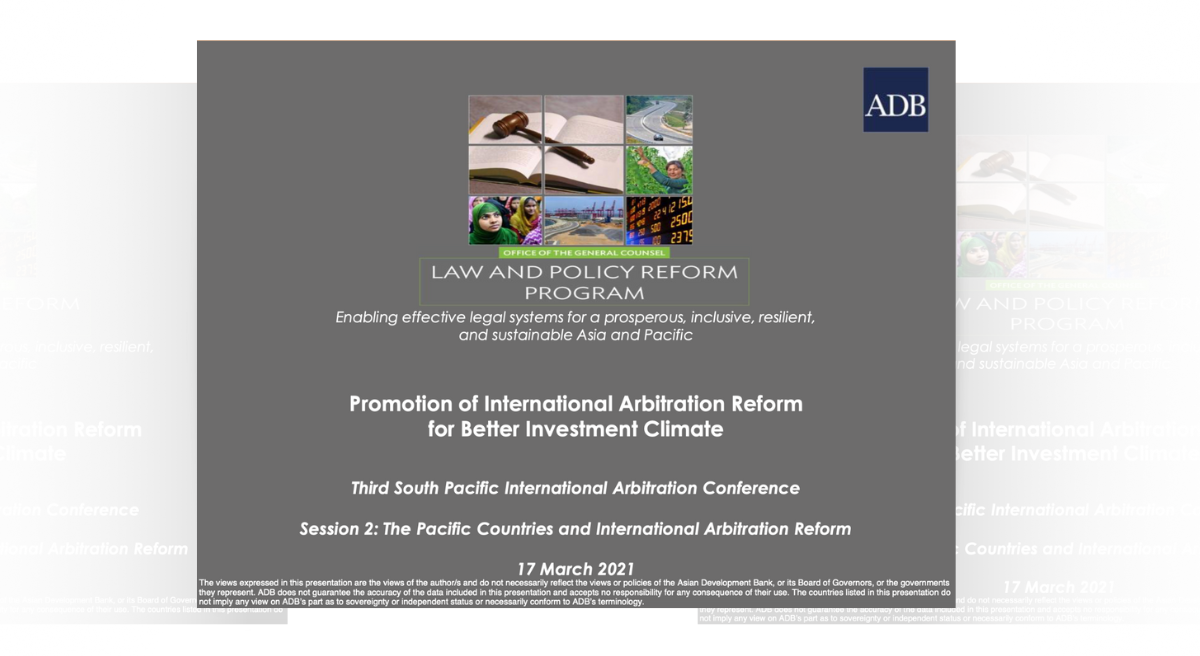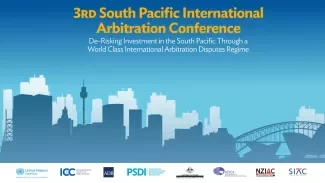ADB Presents Overview of International Arbitration Reform in the South Pacific
Christina Pak, Principal Counsel and Team Leader, ADB Law and Policy Reform (LPR) Program presents at Third South Pacific International Arbitration Conference, Session 2: The Pacific Countries and International Arbitration Reform.
She firstly showcased the LPR arbitration reform technical assistance program accomplishments to date, particularly with assisting several South Pacific countries in adopting state-of-the-art international arbitration laws. These countries include Fiji, which enacted its International Arbitration Act in 2017, and Tonga, which passed its International Arbitration Act in 2020. Palau’s draft International Arbitration Bill is pending before Congress. Despite this progress, many other South Pacific countries lack an effective legal framework for resolving cross-border disputes through international arbitration.
Christina also emphasized that South Pacific countries and Timor-Leste should continue implementing legal reforms on arbitration to attract foreign direct investment (FDI), which constitutes a significant portion of Pacific economies. FDI is essential not just in job creation and private sector growth, but also in post-COVID-19 recovery efforts. She echoed Prof. Dr. Paniagua, another distinguished speaker at the conference, in the recommendation that South Pacific countries should reduce human-made frictions and create a better contractual environment through international arbitration in order to boost their economy. These countries must also implement other reforms to improve the over-all business climate in the region.
The final session of the conference showcased the ADB and Pacific Private Sector Development Initiative involving consultations to understand how ADB could advance international arbitration reform in the South Pacific, followed by a Q&A session.

